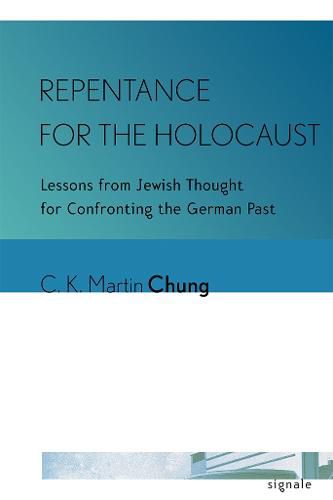Readings Newsletter
Become a Readings Member to make your shopping experience even easier.
Sign in or sign up for free!
You’re not far away from qualifying for FREE standard shipping within Australia
You’ve qualified for FREE standard shipping within Australia
The cart is loading…






In Repentance for the Holocaust, C. K. Martin Chung develops the biblical idea of turning (tshuvah) into a conceptual framework to analyze a particular area of contemporary German history, commonly referred to as Vergangenheitsbewaltigung or coming to terms with the past. Chung examines a selection of German responses to the Nazi past, their interaction with the victims’ responses, such as those from Jewish individuals, and their correspondence with biblical repentance. In demonstrating the victims’ influence on German responses, Chung asserts that the phenomenon of Vergangenheitsbewaltigung can best be understood in a relational, rather than a national, paradigm. By establishing the conformity between those responses to past atrocities and the idea of turning, Chung argues that the religious texts from the Old Testament encapsulating this idea (especially the Psalms of Repentance) are viable intellectual resources for dialogues among victims, perpetrators, bystanders, and their descendants in the discussion of guilt and responsibility, justice and reparation, remembrance and reconciliation. It is a great irony that after Nazi Germany sought to eliminate each and every single Jew within its reach, postwar Germans have depended on the Jewish device of repentance as a feasible way out of their unparalleled national catastrophe and unprecedented spiritual ruin.
$9.00 standard shipping within Australia
FREE standard shipping within Australia for orders over $100.00
Express & International shipping calculated at checkout
In Repentance for the Holocaust, C. K. Martin Chung develops the biblical idea of turning (tshuvah) into a conceptual framework to analyze a particular area of contemporary German history, commonly referred to as Vergangenheitsbewaltigung or coming to terms with the past. Chung examines a selection of German responses to the Nazi past, their interaction with the victims’ responses, such as those from Jewish individuals, and their correspondence with biblical repentance. In demonstrating the victims’ influence on German responses, Chung asserts that the phenomenon of Vergangenheitsbewaltigung can best be understood in a relational, rather than a national, paradigm. By establishing the conformity between those responses to past atrocities and the idea of turning, Chung argues that the religious texts from the Old Testament encapsulating this idea (especially the Psalms of Repentance) are viable intellectual resources for dialogues among victims, perpetrators, bystanders, and their descendants in the discussion of guilt and responsibility, justice and reparation, remembrance and reconciliation. It is a great irony that after Nazi Germany sought to eliminate each and every single Jew within its reach, postwar Germans have depended on the Jewish device of repentance as a feasible way out of their unparalleled national catastrophe and unprecedented spiritual ruin.